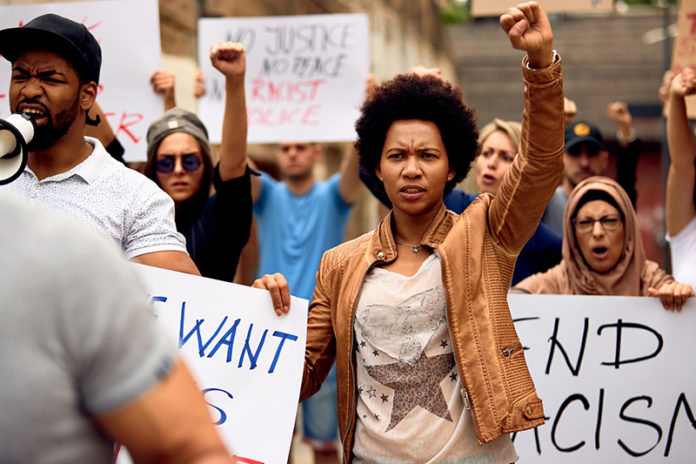While age may have slowed Jesse Jackson’s political activities (he is nearly 80 years old), the strategy he launched in the early 1980s of using race as a lever to pressure corporations into donating money to causes he championed lives on, with renewed vigor in today’s hyper-partisan political environment. Truly, no sporting event or business is safe from becoming a racial football.
In Georgia, the 85th Masters Golf Tournament, which has withstood charges of racism and sexism in recent years, now is under attack not for anything it has done (or not done), but simply because the governor of the state in which it is located last week signed legislation making the state’s voting procedures more secure. That act alone was enough to initiate calls by Black Lives Matter groups and others to both boycott and move the venerable tournament out of Augusta, Georgia.
Baseball, which historically was considered America’s apolitical national pastime, now also is in the crosshairs of these same groups for the very same reason. The annual All-Star game, scheduled to be played this summer at the Atlanta Braves stadium in a suburb of the city long considered the “Capitol of the New South,” is being targeted for boycott and transfer to a stadium in another state.
For now, at least, neither batting averages nor handicaps define professional sports in America, only race.
This actually is nothing new since racial activists five years ago discovered that disrespecting the playing of our National Anthem prior to professional sporting events garnered them significant publicity. What is new, however, is the widening scope of activities that now trigger calls for boycotts, and the vehemence that accompanies such demands.
Not only has the recent changes to Georgia’s voting laws spawned demands to move these major sporting events (and movie productions) out of the state, but calls also have been issued by left-wing groups to boycott some of the Peach State’s most iconic products and services, including Coca-Cola and Delta Airlines.
These targeted corporations have themselves done nothing to warrant the ire of BLM or any other civil rights groups; quite the contrary. Coca Cola and Delta, for example, have for years been committed to, and demonstrably instituted the very principles of “diversity and equity” that these activist groups demand. The companies apparently are targeted for boycott simply because they are headquartered in Georgia and are not publicly demanding that the just-passed voting reform legislation be repealed.
The blatantly unfair demand that the new laws be rescinded is not going to be met, at least anytime soon, but the corporations may very well bow to the demands by offering concessions, like increased donations to BLM and clones and to Democrat candidates in the coming 2022 and 2024 election cycles, and perhaps further changes to hiring and promotion practices.
These tactics reflect the 21st century version of what writers and researchers have called the long-running “intimidation and shakedown tactics” of Jesse Jackson; honed to near-perfection by charging racism in order to secure payments to his self-styled civil rights organization, the “Rainbow Push Coalition” (and other groups with which he has been associated) as far back as the early 1980s. Al Sharpton emulated Jackson’s tactics through his “National Action Network.”
Examined objectively, the legislation recently signed by Georgia Gov. Brian Kemp actually has nothing to do with race. The measures simply tighten procedures to ensure that opportunities for fraud in balloting is minimized to a degree beyond what prevailed in the November 2020 general and January 5th Senate run-off elections. But the mere fact that the new laws require voters to show an ID before receiving an absentee ballot, now is enough to demand harsh penalties on businesses and sporting events in the state; actions that by some analyses, will wind up harming the very people BLM, for example, claims to champion.
Ultimately, whether such heavy-handed and ill-placed intimidation tactics will succeed in changing the political makeup of the government in Georgia (and in other states being targeted), will be decided by next year’s voters. Voter capitulation to such blatant economic and political extortion would deeply undermine – perhaps for generations — the unique brand of federalism and representative democracy that is one of our nation’s core strengths.































